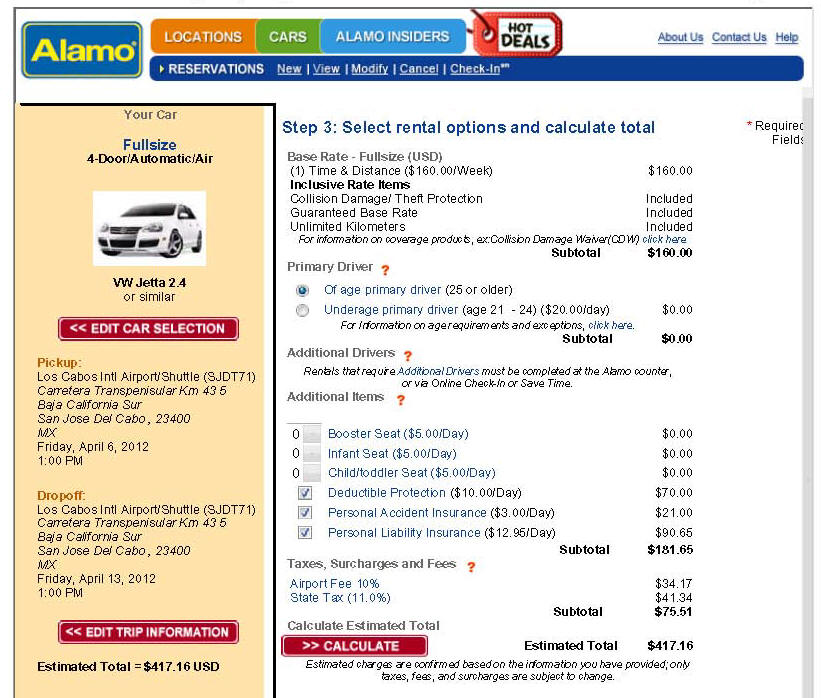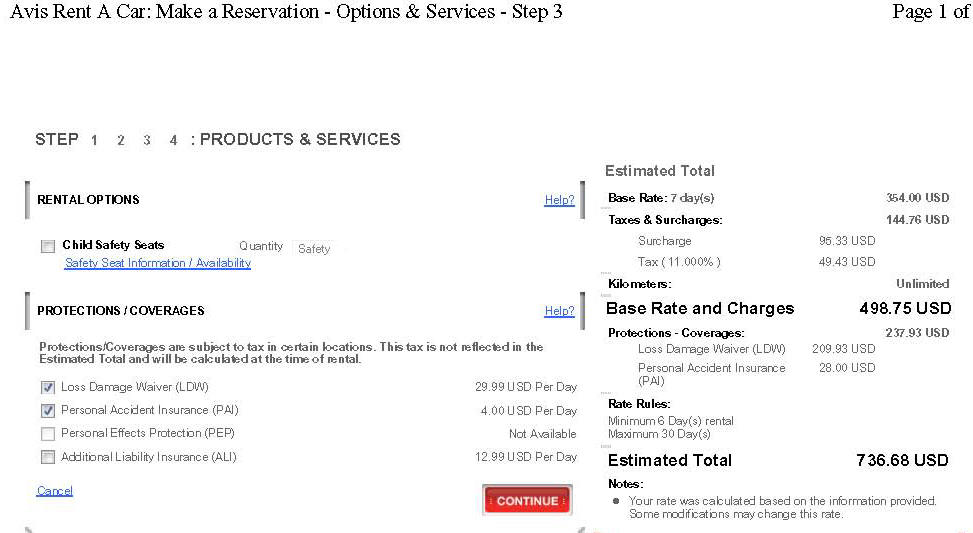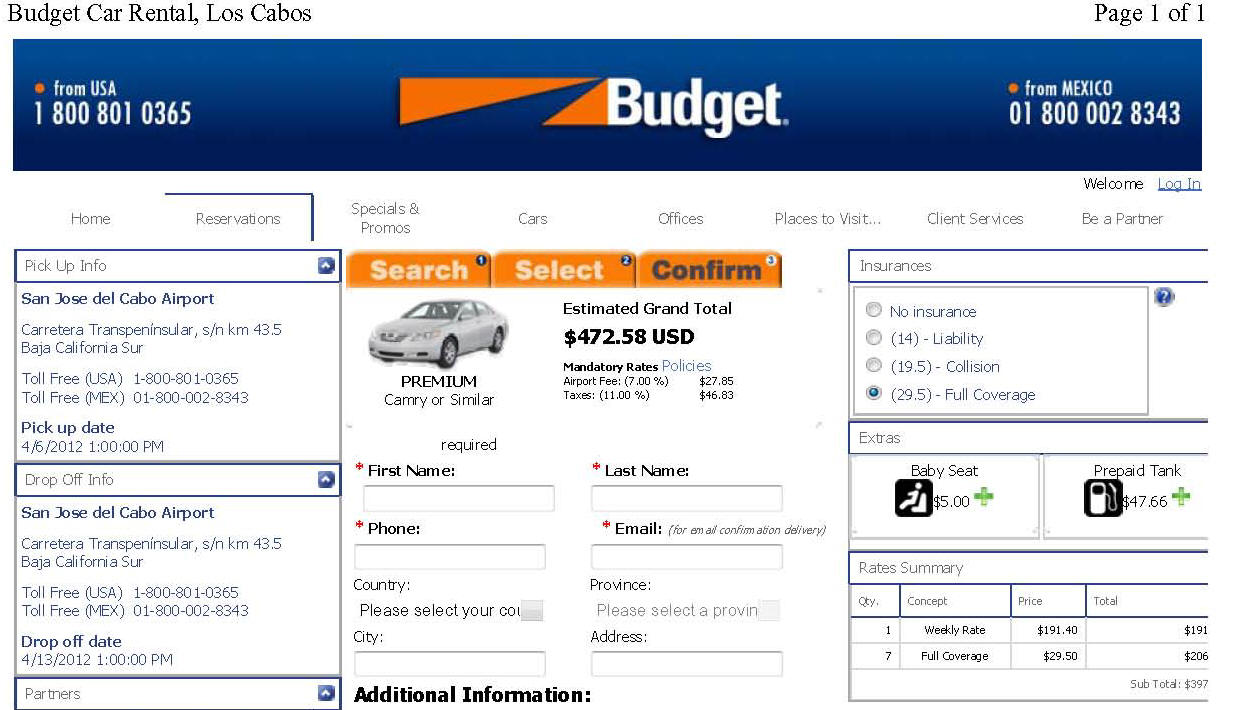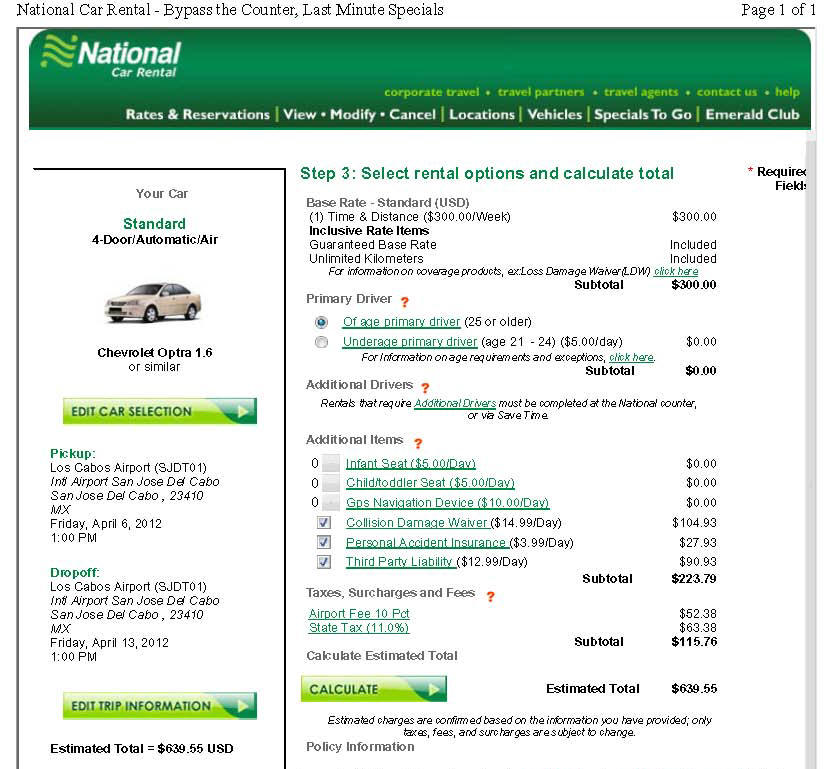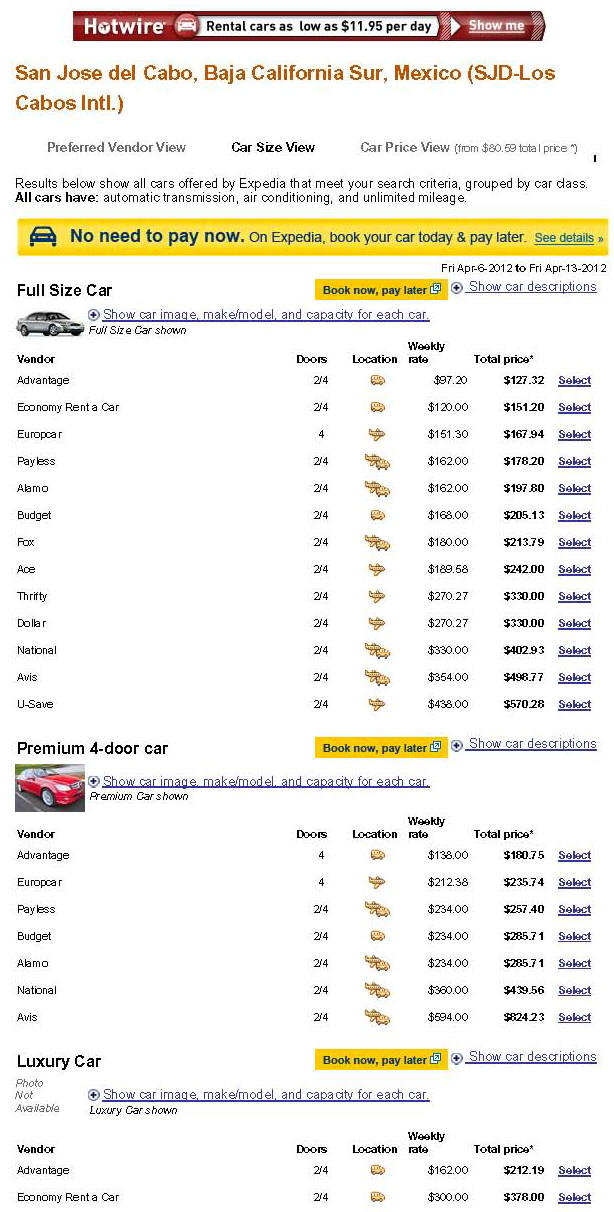
Rental Insurance
(from a Fromme's
travel column) I've done some extensive research into what car rental insurance is mandatory
by law in Mexico and have found that only
Supplemental Liability Insurance (SLI) which is normally included in the price
of the rental or about $11 per day if it is not - is mandatory.
Loss damage waiver (LDW) or collision damage waiver (CDW) are generally covered
by most US based credit cards or a credit card with car rental insurance on it.
If you select LDW/CDW insurance from the rental company, your credit card
coverage becomes invalid.
In order for your credit card coverage to be valid you
must pay for the full price of the rental on your credit card and decline
LDW/CDW from the rental company. The car rental companies often combine these
options and use different names to fool the renter into purchasing them.
Personal Accident Insurance (PAI) is another option which is not covered by your
credit card company but is also not required.
If unsure - contact your credit card company about its policies. At the end of
the day, the car rental company has the last say and could force you to pay for
all the insurance options or deny you the rental. If they do just go to the next
car rental agency.
I know Ace Rent a Car at the Cancun Airport clearly states which insurance is
optional and which in mandatory on its website.
Hope this saves some people some money as Mexican car rental companies are
famous for over charging tourists for things that aren't required. Also make
sure everything is working in the car before leaving the parking lot. Doors,
lights, radio, and windows.
Good point. May I add that if you take the rental car company's CDW/LDW
insurance - the deductible is very high like $2000. So it really makes no
sense to pay for CDW/LDW from the rental company ($25+ per day) then have to pay
a ridiculous $2000+ deductible should something happen.
Liability insurance is a key factor here. You will not get liability coverage through your credit card; it must be purchased separately IF it is not already included in the cost of the rental car. Failure to have liability coverage written by a company licensed to do business in Mexico is a very good way to introduce yourself to the Mexican legal system in the event of an accident.
And speaking of liability, if you manage to cause damage to federal or state infrastructure (i.e., you take out a road sign, fence, signal, etc.) you are liable for its repair/replacement.
Incidentally while traveling on federal toll roads in Mexico your toll includes basic insurance - keep your toll receipts as that's your evidence of this coverage.
And it should go without saying but it's amazing how many tourists seem to think Mexico doesn't have any traffic laws or bothers to enforce them. Each state in Mexico has it's own vehicle code and DMV. Generally speaking the laws are very similar between the Mexican states, just like between US states. And just like in the USA, driving under the influence is a criminal offense in Mexico and is taken very seriously. If you are stopped for suspicion of DUI, you must submit to a mandatory BA test (often a blood draw). Last time I checked the legal limit in Mexico across all states was .08%, just like in the USA.
Third party liability coverage
is not mandatory. You could waive the coverage on your rental car contract if it
is a separate purchase; a lot of rental car companies automatically include it
though. Ask!
As I mentioned earlier, if you get in an accident and cause damage to other
persons or property without liability insurance then you will get a rude
introduction to the Mexican legal system including in all likelihood a trip to
jail.
___________________________________________________________
By
Christopher Elliott
Travel columnist Tribune Media Services updated 2/11/2011 9:54:37 AM ET
2011-02-11T14:54:37
Q: I recently returned from a nine-day trip to Cancun, Mexico. Before arriving,
I booked a car rental through Hotwire.com, accepting a midsize vehicle with
Europcar for $9.80 a day. With taxes, my rental was supposed to come to $97.
Before leaving for my trip, I verified that my credit card company covered all types of rental car insurance and that no additional insurance should be purchased. When I arrived in Cancun, the Europcar agent insisted that it was company policy that I take the extra insurance, otherwise he could not rent me the car. He even insisted that this would have been on the Hotwire agreement page.
Reluctantly, I accepted the insurance. When I got home, I ended up being charged
$268 for the rental car.
The Hotwire and Europcar websites do not mention mandatory insurance, yet
neither will compensate me for what I believe was an attempt to overcharge me
for services. What can be done about this?
— Gordon Houston, Calgary, Canada
A: Ah, the old Mexican insurance scam! Regular readers of this column already know about this one. It goes something like this: You rent a car south of the border, believing the rate you've been quoted includes all mandatory charges. But wait. When you get to the car rental counter, an associate tells you that without insurance, you're not going anywhere. So you pay.
Europcar and Hotwire offered you an unbelievably good rate for a rental car in Cancun. Even with the extra insurance, the $268 rate wasn't bad. But I agree with you. Hotwire should have disclosed the mandatory insurance, preferably in the initial price, and if not there, then at least sometime before you pushed the "buy" button.
Even Hotwire's fine print appears to do an inadequate job of warning customers of the Mexico insurance rules. In fact, it suggested the exact opposite: "You will have the option to purchase insurance and add additional drivers to your contract at the rental counter for an additional charge," it says.
This lack of clear disclosure doesn't benefit Hotwire, or any other intermediary. It only helps the car rental company, which profits from selling you insurance. Still, Hotwire bears some responsibility for failing to quote you a total price, and it should have been more responsive to your complaint.


